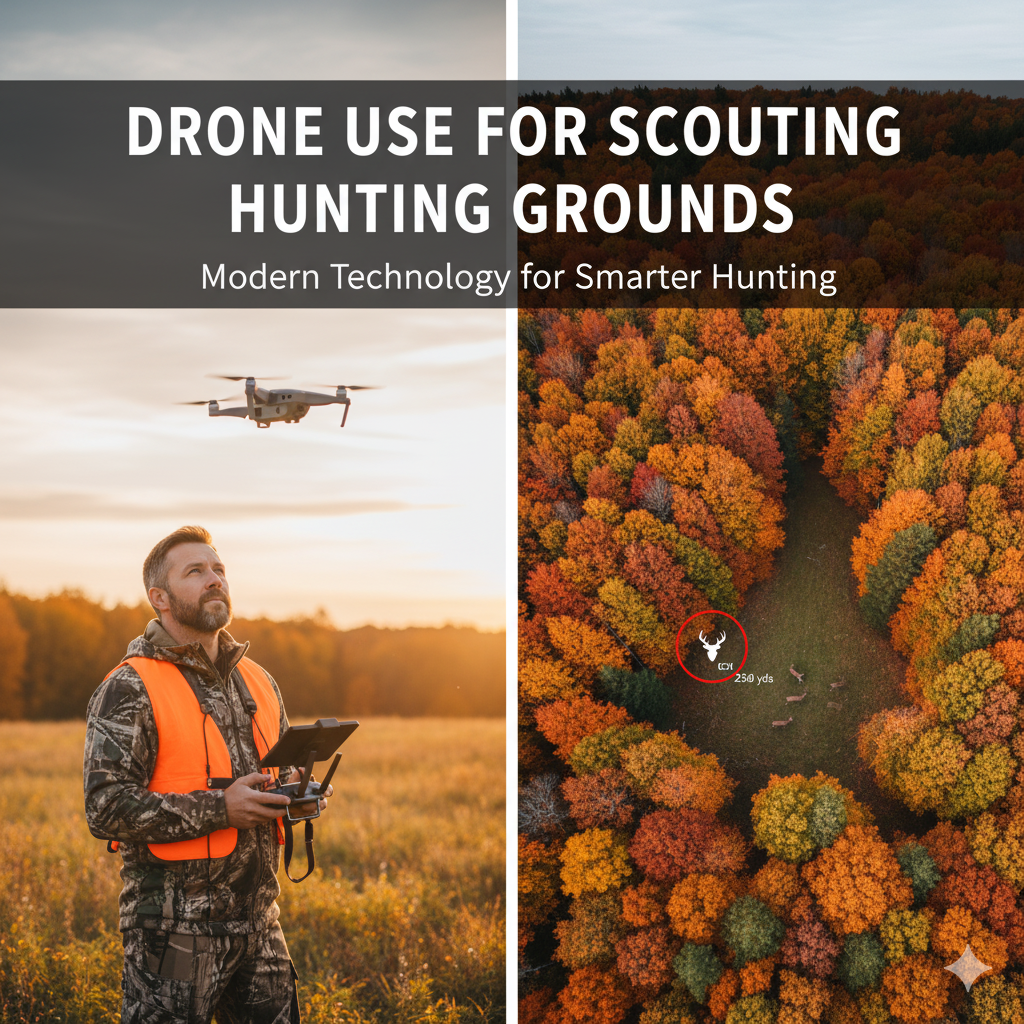
In today’s age of high-tech hunting, drones have transformed the way hunters scout terrain, locate game trails, and evaluate hunting zones. From aerial mapping to monitoring animal movement, drones offer a distinct advantage in planning a successful hunt.
However, before taking flight over your favorite hunting area, it’s crucial to understand the complex web of legal restrictions, ethical considerations, and hunting regulations surrounding drone use. Misusing a drone could lead to heavy fines, revoked hunting licenses, or even criminal charges.
This article dives deep into how hunters are using drones to scout hunting grounds and the legal issues every outdoorsman should be aware of.
Table of Contents
Drones (or Unmanned Aerial Vehicles, UAVs) have become valuable tools for hunters and wildlife managers. Equipped with 4K cameras, GPS, and thermal imaging, modern drones can:
For pre-season scouting, this technology can save countless hours of on-foot exploration. But while drones bring efficiency, regulators view them carefully due to potential misuse during actual hunts.
At the national level, drone usage is primarily regulated by the Federal Aviation Administration (FAA). Under FAA Part 107, recreational and commercial drone pilots must:
Violating FAA regulations can lead to fines up to $27,500 (civil) or $250,000 (criminal) and imprisonment.
Where things get more complicated is at the state level. Every U.S. state (and Canadian province) has its own hunting-related drone laws.
In most regions, using drones to locate, track, or harass wildlife during an active hunting season is illegal. For example:
In short: while drone scouting is legal for land survey and terrain mapping, using a drone to gain a real-time advantage during hunting season is usually a violation of fair chase principles.
The concept of Fair Chase, established by the Boone and Crockett Club, emphasizes equal opportunity between the hunter and the hunted.
Using drones to spot or track animals violates this principle because it:
Even where not explicitly illegal, many hunting associations condemn drone use during active seasons. Ethical hunters often use drones only for off-season land scouting, property boundary checks, or habitat restoration surveys.
Despite restrictions, there are legally acceptable and highly beneficial applications for drones in the hunting ecosystem:
Use drones to map trails, identify water sources, or measure field coverage before the season starts.
This gives hunters valuable insights while staying compliant with local laws.
Landowners can use drones to:
Drones help biologists and conservation agencies track herds, identify disease spread, or monitor habitats — a practice often permitted with special authorization.
Some jurisdictions allow drones for search and rescue or game recovery (after a legal harvest), provided they’re not used to pursue live animals.
Before flying, ensure you’re not crossing any legal lines. Here are common mistakes that lead to penalties:
| Mistake | Legal Consequence |
|---|---|
| Flying drones over wildlife refuges or national parks | Federal violation (hefty fines) |
| Using drones to flush, locate, or chase animals | Illegal in most states |
| Filming other hunters or private property without permission | Privacy law violations |
| Failing to register drone or obtain FAA certification | Civil fines up to $27,500 |
| Flying during restricted hours or zones | Confiscation or license suspension |
Always consult your local wildlife agency or state hunting department before operating drones in the field.
Follow these best practices to stay within legal and ethical bounds:
The future of drones in hunting looks promising yet tightly regulated. As technology advances, drones are being used not only for scouting but also for wildlife population surveys, reforestation, and fire management.
Some states are considering permit-based drone programs for ethical scouting or conservation monitoring. Others may introduce geo-fencing systems that automatically restrict flight zones near active hunting areas.
Ultimately, the responsible use of drones can make hunters more informed stewards of the land as long as the line between technology and fair chase remains respected.
Drones are powerful tools that can revolutionize pre-season scouting, land management, and conservation efforts. But their misuse can just as easily lead to legal trouble and ethical controversy.
For every hunter, understanding and respecting both FAA flight laws and state wildlife regulations is essential before taking off.
By flying responsibly, you ensure that drone technology enhances your hunting experience without compromising ethics, legality, or wildlife well-being.
Every hunter knows that a steady shot can make or break a hunt. Whether you’re…
Smart rifle scopes have shifted from niche gadgetry into practical tools for hunters, competition shooters,…
Hunting isn’t just a sport it’s a legacy of stewardship, respect for nature, and hands-on…
If you’re new to hunting or target shooting, choosing the right rifle scope can feel…
If you're out bowhunting, you know that estimating yardage isn’t just helpful it’s essential. A…
Table of Contents Introduction Gun ownership laws and regulations in the United States vary from…
This website uses cookies.